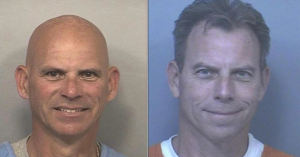Parole, Power, and the Menendez Brothers: A Call for Reform
For the first time since their 1996 conviction, Erik and Lyle Menendez appeared before the members of the California parole board and presented their case for release. The Menendez Brothers were sentenced to two consecutive life terms in prison without the possibility of parole for the 1989 murder of their parents, José and Kitty Menendez; in May 2025, a California judge resentenced the brothers to a parole-eligible sentence of 50 years to life. Erik and Lyle appeared before separate two-person panels for nearly 10 hours each before their parole was denied.

The Menendez Brothers case highlights the complexities
The Menendez Brothers case highlights the complexities within parole systems and the challenges faced by people seeking parole. That’s why the National Parole Transformation Project partnered with the Prison Policy Initiative to release the Principles for Parole Reform – a statement of belief about what our parole systems should look like. This includes creating real pathways to parole by expanding parole eligibility to all incarcerated people, changing parole board composition to include professionals with a trauma-informed lens, developing objective criteria for release that ensure transparency, and providing due process rights during parole and revocation hearings.
The possibility of parole is out of reach for incarcerated people in the 16 states that have abolished or limited discretionary parole, including California. Since 2014, however, California has passed laws that expand parole eligibility for elderly prisoners and people sentenced as youth. Additionally, factors like current age, age of conviction, and time served can contribute to people becoming eligible for parole. Erik and Lyle Menendez were 18 and 22, respectively, when they were arrested.
For the Menendez Brothers, the 2024 debut of the Netflix true-crime series Monsters: The Lyle and Erik Menendez Story and the documentary The Menendez Brothers were game changers for their case. An outpouring of sympathy from viewers – in addition to new evidence supporting their self-defense claims – led the Los Angeles District Attorney George Gascón to recommend their resentencing, making them eligible for parole.
California’s efforts to expand parole eligibility, however, are undermined by the subjectivity of the parole boards, which hold the discretion to determine who should be released. According to the Prison Policy Initiative, California’s parole grant rate fell to 29% between 2019 and 2022. Policy changes resulted in an additional 3,000 parole hearings; however, only 75 more individuals were released in 2022 compared to 2019. More work needs to be done to ensure that parole boards adhere to consistent, clear guidelines for making parole release decisions.
Parole boards may also make decisions based on the crime of conviction, forcing people seeking parole to endure a system that effectively will punish them more than once. The Menendez Brothers were denied parole for various factors, one of which was their behavior immediately after the murder. But parole should be granted on the basis of growth and a person’s potential to impact their communities, especially for individuals who were sentenced as youth; parole boards should only focus on a person’s risk for misconduct based on their behavior in prison.
Parole commissioner Julie Garland applauded Lyle Menendez for his participation in programs and positive relationships he built and maintained behind bars, but also pointed to Lyle’s “poor threat perception” about the risk his father posed to the brothers and his possession of a cell phone in prison as reasons for his denial.
Erik and Lyle Menendez will have an opportunity to pursue parole in three years; the parole commissioners found both brothers pose a moderate risk to the public.
The Menendez Brothers benefited from the publicity of multiple documentaries produced by one of the largest entertainment companies in the world and policy changes to California’s parole system. Parole advocates must organize and create a momentum that breaks down barriers to parole for all incarcerated people, recognizes their potential for change, and upholds their rights.
Resources
-
Principles for Parole Reform
Compiled by the Prison Policy Initiative and MacArthur Justice Center’s National Parole Transformation Project, this is what we believe our parole systems should look like -
Going Back to Cali: Revisiting California’s Parole Release System
More than 9,000 people were eligible for hearings in California last year, though the state abolished discretionary parole in 1977. With grant rates among the lowest in the nation and people forced to wait up to 15 years between hearings, the Golden State's parole system is far from glittering. -
The Menendez Brothers’ Parole Denial
Latest from ABC News: Lyle Menendez also denied parole, will stay in prison with Erik Menendez
